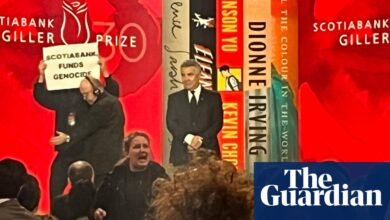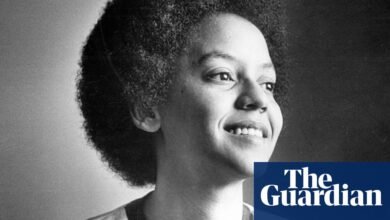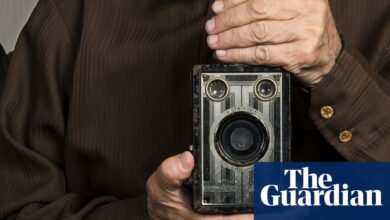‘I love the whole atmosphere and can spend hours browsing’: how did bookshops suddenly become cool? | Books

Gen Z’s cultural tastes are heralded, maligned and mythologised in almost equal measure. But one stereotype persists above all: that young people are addicted to their phones, keen to live their lives primarily through a screen.
But is this the whole picture? A survey commissioned by the Booksellers Association ahead of Bookshop Day tomorrow has found that gen Z and millennials are more likely to buy a book based on a bookseller’s recommendation – in person, in a bookshop – than older age groups: 49% and 56% respectively, compared with 37% of gen X and 31% of baby boomers. Booksellers from around the UK told me this wasn’t surprising – that, in the last few years, they’ve noticed a sharp rise in young readers coming into their shops seeking out human guidance, eager to be in a physical store rather than filtering through AI and influencer-recommended titles online.
“I love the whole atmosphere in bookstores and can spend hours browsing – I think that’s a big part of it,” Emily, 26, from Northampton explains. “You can take hours without feeling rushed or like you’re imposing.”
“I really feel like it’s a proper outing to go and talk with the person at the bookstore and see what they think and tell them about the books that I like,” Sarah, 27, who lives in Edinburgh, tells me. “I just think it’s so much more fun than picking something based on an algorithm.” She describes the bookshops in her neighbourhood as beautiful and calming – visiting is an event, something which can’t be re-created online. “I just find shopping online so much less joyful,” Hannah, 26, from south London agrees.
The internet does have a role to play in bookshops’ popularity with young people, however. BookTok, the corner of TikTok devoted to all things literary, is where many people I spoke to said they got both book and bookshop recommendations. “Videos of people going to irl bookshops have made me romanticise them a bit more,” Hannah tells me. Emily says that she will take recommendations she gets online and wait until she can buy it in a bookshop.
There is a flipside to this – what Jordan Taylor-Jones, the founder of The West Kirby Bookshop, describes as “the gamification of reading and the ‘accessorisation’ of books” we’ve seen in the last few years. Fashion brands are aligning themselves with authors and things like the notorious celebrity book stylist have emerged as a result of books and reading becoming “cool”.
“I have noticed over the last year gen Z readers visiting the bookshop and using it almost as a studio to take staged photos,” he says. “They’ll often get their friend or partner to take posed photographs of them browsing the shelves or simply looking wistfully out of our shop window.”
He emphasises that this does not apply to all young customers – and that social media has helped to amplify the bookshop to younger readers who travel from neighbouring towns and cities to visit – but says it’s not uncommon to have the bookshop being treated as a backdrop for social media posts by people who have no intention of actually buying a book.
However, a resistance to algorithmic recommendations popular on BookTok (as well as online bookstores like Amazon) might be one of the most common things driving young readers into physical bookshops. Almost everyone I spoke to – both booksellers and young readers – were on the whole sceptical of giving BookTok too much credit for the popularity of shopping in physical shops. Some readers said they experienced an inverse effect, a kind of “BookTok burnout”, and have actually sought out in-person recommendations as an antidote to being pushed the same books by BookTokers ad nauseam.
“The algorithm doesn’t really do much other than give you the same books within the genre,” Jack, 24, who lives in Mallaig, argues. Conversely, he says, “the art of the bookseller is almost like a DJ where, if you tell them your general reading habits, then they’ll come out with something you are almost categorically going to enjoy – even if it’s left field from your normal habits.”
after newsletter promotion
What really draws young readers into bookshops, though, is something more personal. Booksellers tell me readers come out in droves to buy signed books, and that author talks are a big draw, especially for younger readers wanting to connect with their favourite writers.
“Post Covid, people don’t go out drinking or clubbing as much – we’ve found students are choosing to spend their money on a special edition of a new book,” Adele Wrightson, the manager at the bound bookshop in Whitly Bay says.
“I think it’s kind of a misconception that younger people want to do everything online or only care about how things look on social media,” Grace Gooda, the manager at Morocco Bound in Bermondsey tells me. “In our experience … it creates a relationship where they trust our recommendations and might take home something they wouldn’t have seen advertised elsewhere.”
This deeper connection is what really makes physical bookshops appeal to many younger readers. “Bookshops aren’t just places to buy books, they’re places of community, of gathering and this is something that’s actively fostered by so many bookshops,” Ash, 29, from Yorkshire, says. “Speaking to staff to get book recommendations is often a path into hearing more about the community aspects of bookshops, too – it’s often more than just a book recommendation.”
Source link



